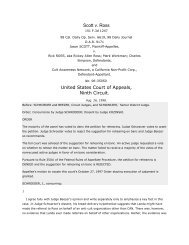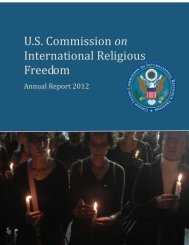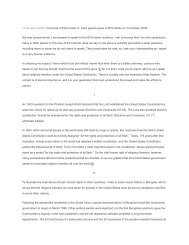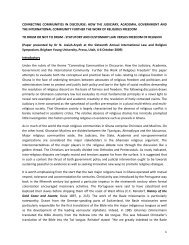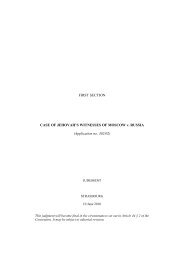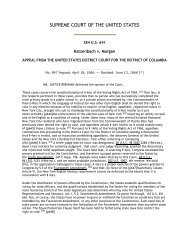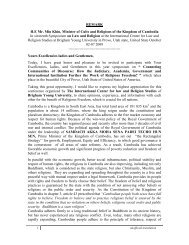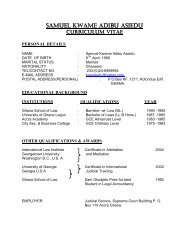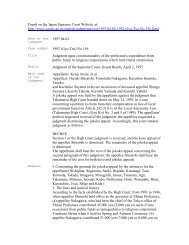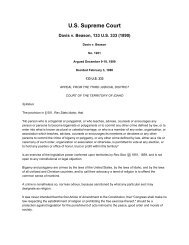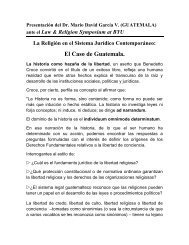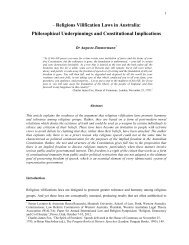Ruling (.pdf) - International Center for Law and Religion Studies
Ruling (.pdf) - International Center for Law and Religion Studies
Ruling (.pdf) - International Center for Law and Religion Studies
You also want an ePaper? Increase the reach of your titles
YUMPU automatically turns print PDFs into web optimized ePapers that Google loves.
Did Christian Horizons create, or permit a poisoned work environment, or otherwisediscriminate against Ms. Heintz, such that her right to be free from discrimination wasinfringed?[203] I have found that Christian Horizons has not established that it is entitled to theexemption under section 24(1)(a). There<strong>for</strong>e, the requirement that Ms. Heintz complywith the Lifestyle <strong>and</strong> Morality Statement as a condition of employment violated her rightto be free from discrimination in employment. It was not seriously argued by ChristianHorizons that it avoids liability on the basis that Ms. Heintz accepted the restrictiveemployment conditions when she was hired, or because she resigned, rather thanhaving been terminated. It is clear that the discriminatory qualification played a centralrole in Ms. Heintz leaving her employment. Mr. Alemu told Ms. Girling that Ms. Heintzshould look <strong>for</strong> other employment <strong>and</strong> that Ms. Heintz would be given until Septemberto “effect changes.” Mr. Alemu also testified that had Ms. Heintz not resigned <strong>and</strong>remained in non-compliance with the Lifestyle <strong>and</strong> Morality Statement, he would haveterminated her employment. It is also well established that employees <strong>and</strong> employersare not entitled to contract out of the Human Rights Code.2008 HRTO 22 (CanLII)[204] Independent of whether Christian Horizons has met the conditions <strong>for</strong> theexemption under section 24(1)(a), I find that Christian Horizons has infringed Ms.Heintz’s rights under the Code as a result of the work environment <strong>and</strong> how she wastreated once her sexual orientation came to light. Section 24(1)(a) provides anemployer the right to impose restrictions, or give preferences in employment in certainspecified circumstances. It does not exempt an employer from the application of theCode altogether. The Code places a range of obligations on an employer. Forexample, it has been found that an employer has an obligation to ensure that anemployee is able to work in an environment free from harassment <strong>and</strong> discrimination(See <strong>for</strong> example Janzen v. Platy Enterprises Ltd., [1989] 1 S.C.R. 1252; Robichaud v.Canada (Treasury Board), [1987] 2 S.C.R. 84), that an employer is required to takesteps to properly investigate incidents of harassment, <strong>and</strong> respond in an effective <strong>and</strong>timely way (Hines v. Canada (C.E.I.C.) (1988), 10 C.H.R.R. D/5683 (Can.Trib.), Uzoabav. Canada (Correctional Service) (1994), 26 C.H.R.R. D/361 (Can.Trib.) , <strong>and</strong> that anemployer is not permitted to base per<strong>for</strong>mance appraisals or issue discipline on the62



